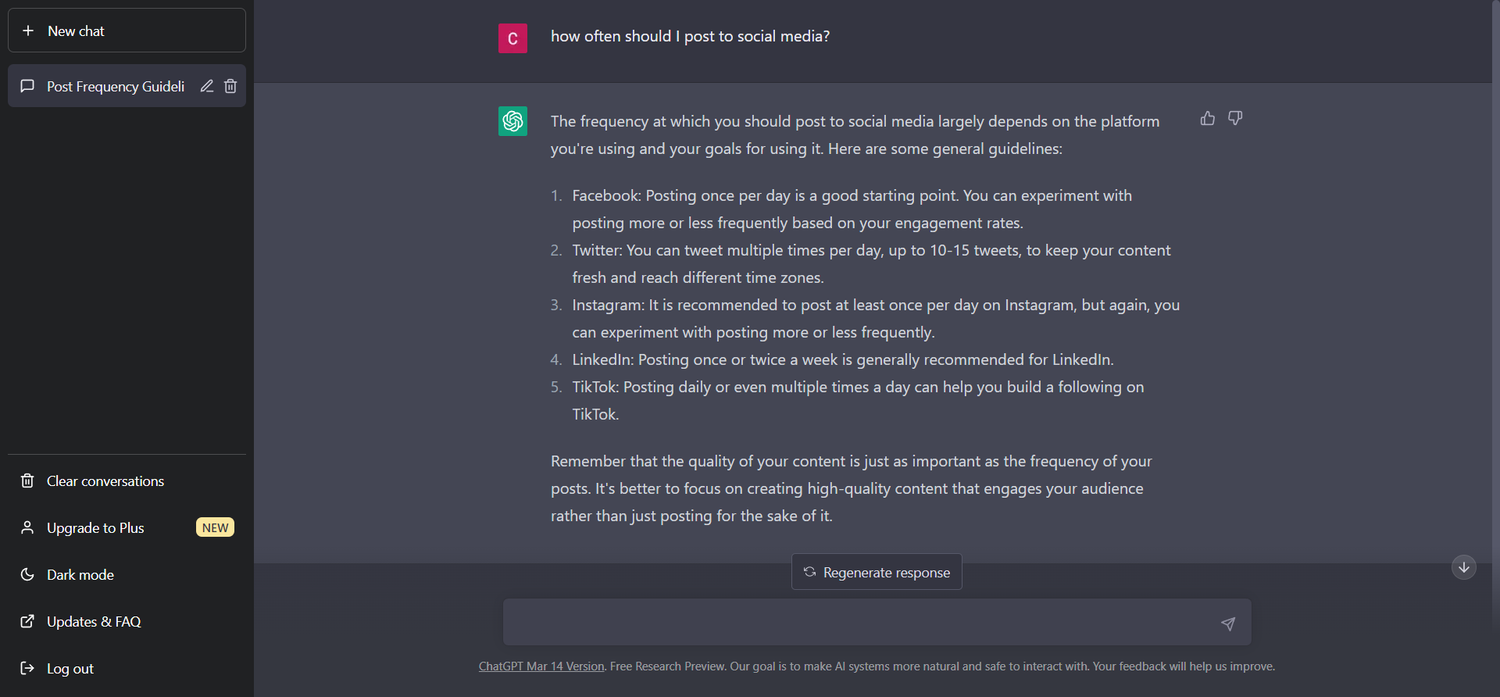I, a Writer, Tried ChaptGPT. Here’s What I Learned. (Part 1)
I’ve had more than one person ask me if I’m worried about AI writing systems, namely, ChatGPT. The AI-powered program “is trained on a large corpus of text data and can generate responses to questions, summarize long texts, write stories and much more.” Six years ago when I started Next Page, I honestly didn’t worry that a robot could replace what our agency provides: good writing. You can’t fake good writing. And I taught writing for enough years to learn the telltale signs of plagiarism from a student’s paper. You just know when something doesn’t add up with the person sitting across the table from you.
In short, no, I wasn’t worried. Now? Eh…
I’ve met enough small business owners to know that they don’t necessarily need, want or have the budget for a paid writer - all they really want is a place to start. In that regard, is ChatGPT worth it? Here’s what I learned.
You won’t have a completely polished piece of content, but you will have a start.
This New York Times article said it best, “It’s the equivalent of a very well-read intern.” I tried a few of my own questions to see if I agreed with the responses and to test its “humanness” (yikes, just typing that word made me feel a little nauseous).
I asked, “How often should I post to social media?” and it began to tell me what I expected, “...it varies based on which platform you are using.” Then it started to spit out some general information about each platform, Facebook, TikTok, Instagram - nothing that I haven’t seen in general Google searches.
Was it correct? Technically, no.
Something incredibly important to note for almost any industry is that the program itself recognizes it has “limited knowledge of the world and events after 2021.” Two years ago may sound pretty recent, but in our post-COVID world, it’s not. In 2021, you still had to wear masks on planes regardless of vaccination status as well as show proof of vaccination status to even be inside some places. Right now, I couldn’t even tell you where my vaccination card is…
Digital marketing changes even more quickly than that. What was true of social media platforms six months ago is possibly not true today. In fact, as professionals in this industry, we’ve learned that these standard “recommendations” of posting once a day is a terrible idea. Facebook, Instagram and especially LinkedIn really hate it. So much so that they’ll demote your posts if you’re posting that often.
Of course, this system protects itself by offering vague language around the bulk of its content. There was a lot of “If ____ then ____.” language reminding you that no matter what, you need to make the best decision for your business.
That all being said, does the content sound like it was written by a human? It does. But if you’re expecting that the content will read as though you wrote it, you’re going to be disappointed. If you’re going to use this platform, it’s important to not use the content verbatim (more on that later) and that you already know a lot about the topic. Because it will still require you to use common sense and brain power for the language to work for your business without sounding generic or outdated.
I appreciate their commitment to safety, but…
ChatGPT is a digital marketing tool. And like all digital marketing tools, it will collect data on you. For most things, especially as a marketer, I understand this. If I’m searching for a new kitchen table online, I expect that I’m going to be shown plenty of ads over the next few days for kitchen tables every time I log into my laptop or look at my phone.
But ChatGPT isn’t advertising anything to me. And if I know anything about our digital footprint, it’s that you can expect you are the commodity if you are using a free platform like this. Although it asks for some standard information (name, email address - information that can be falsified), I know it’s storing some data on me. So what is that? Under its policies tab, it states that it will keep data for 30 days before being deleted but that it may send “de-identified content to third-party contractors (subject to confidentiality and security obligations) for safety purposes.”
Safety is a big part of their mission, so if their goal is to protect the world from irresponsible AI content (according to them), then they will have to gather more than “de-identified” data. And with Twitter accounts being revoked and reinstated and Supreme Court decisions affecting how women search for healthcare in their state, I’m just a tiny bit skeptical. This is a slippery slope for nearly all users.
Part 2 Coming Up Next Month!
Turns out I have a lot of thoughts about this (shocker, right?), so stay tuned for next month’s blog post where I’ll dive into what this means for the next generation of writers, students and plagiarism and how biases work within this platform.
In the meantime, meet our non-AI team of writers and creatives!

